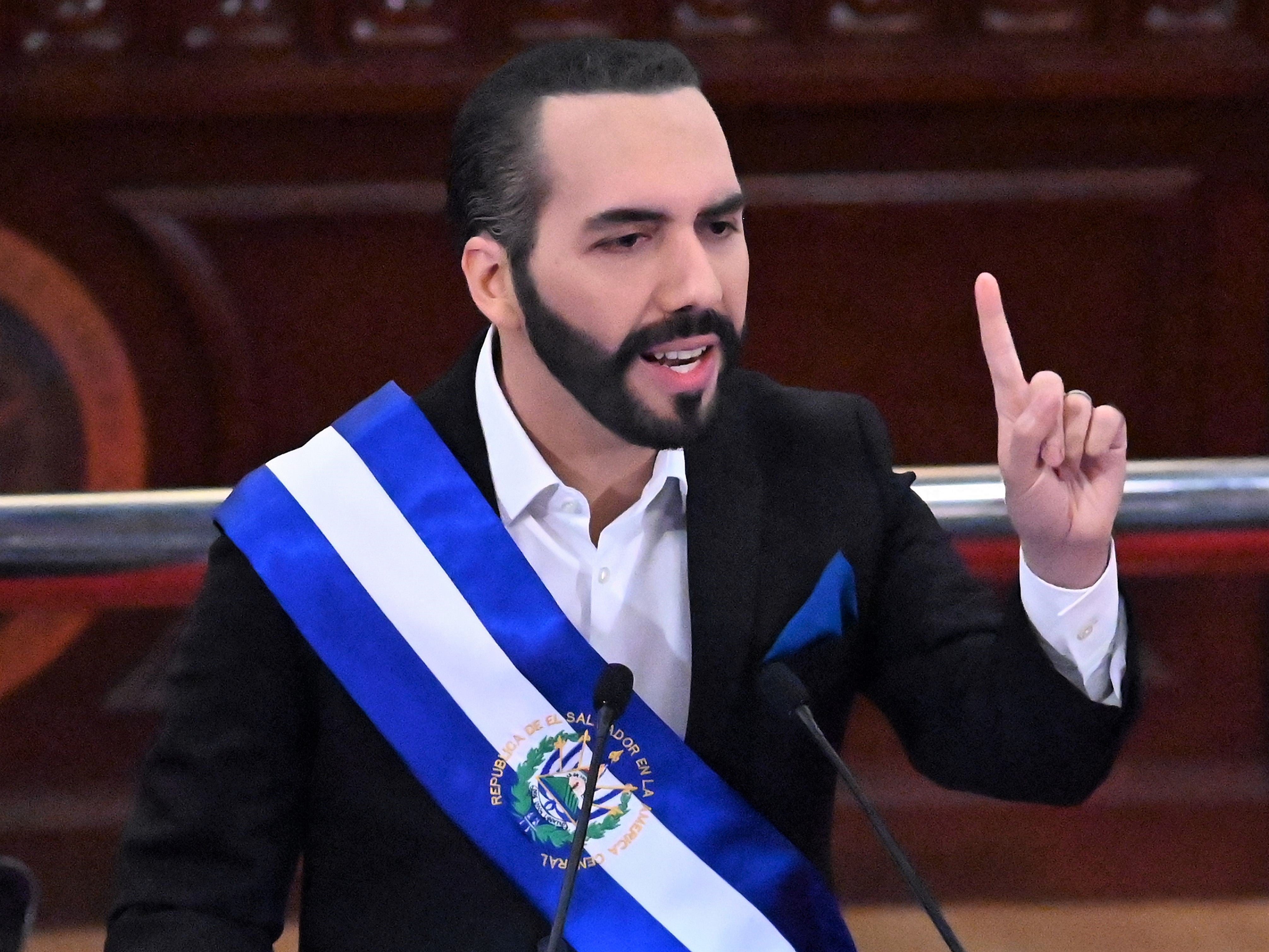Bitcoin price flash crash prompts El Salvador president to ‘buy the dip’
‘They can never beat you if you buy the dips,’ Nayib Bukele tweets. ‘Presidential advice’

Your support helps us to tell the story
From reproductive rights to climate change to Big Tech, The Independent is on the ground when the story is developing. Whether it's investigating the financials of Elon Musk's pro-Trump PAC or producing our latest documentary, 'The A Word', which shines a light on the American women fighting for reproductive rights, we know how important it is to parse out the facts from the messaging.
At such a critical moment in US history, we need reporters on the ground. Your donation allows us to keep sending journalists to speak to both sides of the story.
The Independent is trusted by Americans across the entire political spectrum. And unlike many other quality news outlets, we choose not to lock Americans out of our reporting and analysis with paywalls. We believe quality journalism should be available to everyone, paid for by those who can afford it.
Your support makes all the difference.El Salvador has used a mini bitcoin price crash as an opportunity to add to its cryptocurrency holdings.
Salvadoran President Nayib Bukele revealed that the Central American country bought 150 bitcoins over the weekend, worth roughly $6.7 million at current exchange rates.
He made the announcement on Sunday night, shortly after the price of bitcoin fell from above $48,000 to below $46,000.
“We just bought the dip. 150 new coins! El Salvador now holds 700 coins,” he tweeted.
“They can never beat you if you buy the dips. Presidential advice.”
The purchase comes less than two weeks after El Salvador officially introduced bitcoin as a form of legal tender, making it the first country in the world to do so.
The country’s Bitcoin Law aims to reap the benefits from the cryptocurrency’s borderless and decentralised technology, however it is also blighted by major price fluctuations.
The cryptocurrency slashes remittance fees, which accounts for roughly 23 per cent of El Salvador’s GDP, while also serving as a hedge against inflation and reducing the reliance on the US dollar as a reserve currency.
It also offers a direct route to financial services in a country where around 70 per cent of the population does not have a bank account.
Within hours of the law coming into effect on 7 September, the price of bitcoin fell by around 15 per cent amid difficulties with the state-backed digital wallet app Chivo.
The move has also prompted demonstrations in the country, with some protestors vandalising several bitcoin ATMs.
A survey earlier this year found that only one third of Salvadorans were in favour of the new law, while many did not understand what a cryptocurrency was.
“El Salvador’s news on its bitcoin launch as legal tender in the country had the nation divided,” Gunnar Jaerv, co-founder of Hong Kong-based custodian First Digital Trust, told The Independent.
“There will always be pros and cons to adopting new things that would essentially change people’s lifestyles with uncertainty for those who may not understand it. However. once people in the areas working on making bitcoin a legal tender realise the opportunities that can open up to them, such as remittance and earning yield on their bitcoin, there will be a stronger perception of bitcoin adoption.”


Join our commenting forum
Join thought-provoking conversations, follow other Independent readers and see their replies
0Comments